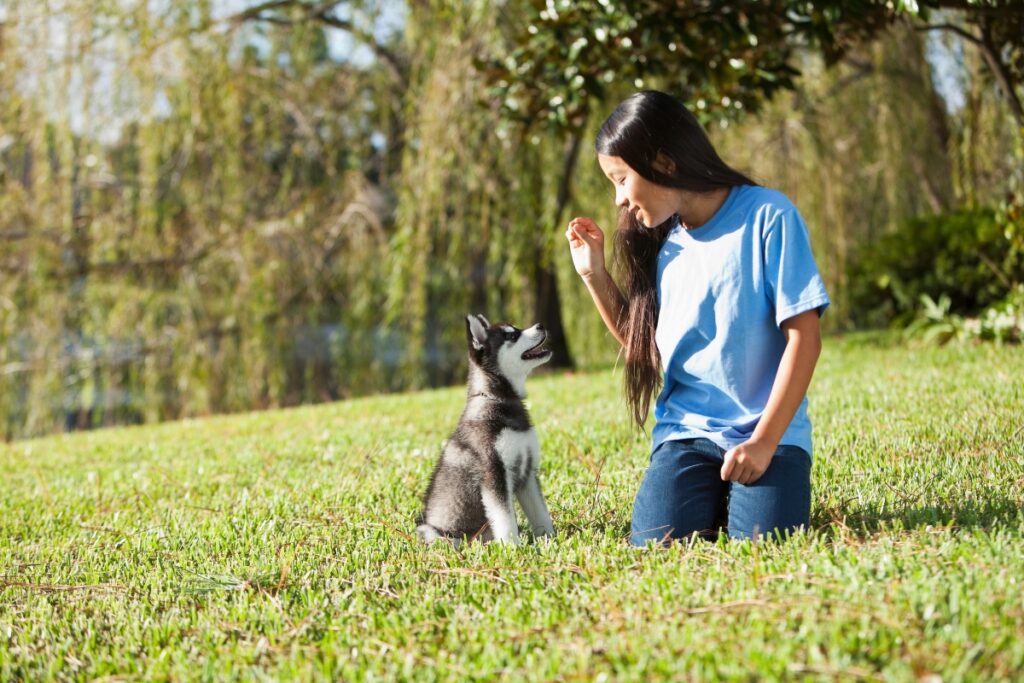Bringing a new puppy home is exciting, but it comes with a rollercoaster of challenges. From endless energy to costly surprises, there are hurdles every new puppy parent must overcome. Here are ten common struggles—and how to tackle them with love and patience.
1. The Midnight Whining
One of the first hurdles is getting through the night without constant whimpering. Puppies may cry from loneliness, anxiety, or needing to relieve themselves. Early on, establish a calming bedtime routine with a warm, comfortable crate to help them settle down. Gradually, your puppy will feel secure enough to sleep through the night. Be prepared for interrupted sleep during the adjustment phases, but trust that with consistency, nights will improve.
2. Accidents Everywhere

Housebreaking can be one of the most trying tasks for new puppy parents. Puppies have small bladders and can’t hold it for long, leading to frequent accidents. To make this easier, stick to a consistent schedule—take your pup outside after meals, naps, and play sessions. Always offer praise or treats when they successfully go in the right place. While the process may be slow, consistency and positive reinforcement are key.
3. Chewing Non-Stop

From shoes to furniture, nothing is safe from a teething puppy. This phase can last for several months, as chewing helps soothe their discomfort. The trick is to redirect their focus to approved chew toys. Keep anything valuable or dangerous out of reach, and be sure to puppy-proof your home. Supervise and gently correct bad behavior when necessary, but remember: This, too, shall pass.
4. Training Social Butterflies

Socializing your pup early is crucial for their development, but it’s not always smooth sailing. New sights, sounds, and experiences can make puppies anxious. Introduce them slowly to new environments, people, and other animals. Positive experiences build confidence and prevent fear-based aggression in adulthood. Every outing is a chance for your puppy to learn and adapt to the world around them, making them calmer and more well-rounded in the long run.
5. Explosion of Energy

Puppies are bundles of energy, and if it’s not properly managed, they can become destructive. A bored or restless puppy might chew on furniture or act out. Daily exercise is essential—walks, playtime, and mental stimulation will help tire them out. Activities like fetch, puzzle toys, or obedience training can go a long way in channeling that puppy energy into something productive. A worn-out puppy is a happy puppy.
6. Play-Biting Gets Out of Hand

Biting and nipping during playtime is natural for puppies, but the behavior can become problematic if not corrected early. Teaching bite inhibition is vital. If your puppy bites too hard during play, stop the game immediately and give a firm “no.” Offer them an appropriate toy to chew on instead. Over time, they’ll learn the boundaries of acceptable play, making interactions with people much safer and more enjoyable.
7. Unexpected Expenses

Many first-time puppy parents are caught off-guard by the costs of care. Beyond the initial price of your puppy, you’ll face ongoing expenses like vaccinations, vet visits, food, grooming, and training. Unexpected emergencies can also add up quickly. It’s important to create a budget early and plan for these expenses. Pet insurance is a great way to help cover medical costs and avoid financial surprises in the long run.
8. Time and Patience for Training

Training a puppy can be both rewarding and exhausting. Puppies test boundaries, and it may seem like you’re constantly repeating commands. Short, consistent sessions work best, keeping your puppy engaged and eager to learn. Focus on positive reinforcement—praise, treats, and playtime all encourage good behavior. Establishing basic commands like “sit,” “stay,” and “come” early on lays the groundwork for more advanced training later.
9. Navigating Health Scares

Puppies are more susceptible to illness during their first few months, which can be worrying for new owners. Common concerns include parvovirus, worms, and kennel cough. Regular vet checkups and vaccinations are essential for their health. Be vigilant for any signs of illness, such as vomiting, lethargy, or changes in appetite. Acting quickly and seeking professional advice is critical for keeping your pup safe and healthy during these vulnerable early months.
10. Easing Separation Anxiety

Leaving your puppy alone for the first time can lead to anxiety-driven behaviors like excessive barking, chewing, or even potty accidents. To ease separation anxiety, start with short absences, gradually extending the time away. Create a safe, comforting space for them with familiar toys and scents. Using calming aids, like white noise or soft music, can also help reduce their stress. With patience, your puppy will become more comfortable being on their own.
Raising a puppy is a journey full of ups and downs, but the bond you create through the challenges is truly special. With patience, love, and consistency, you’ll not only overcome these struggles but enjoy watching your pup grow into a well-adjusted, happy companion.







